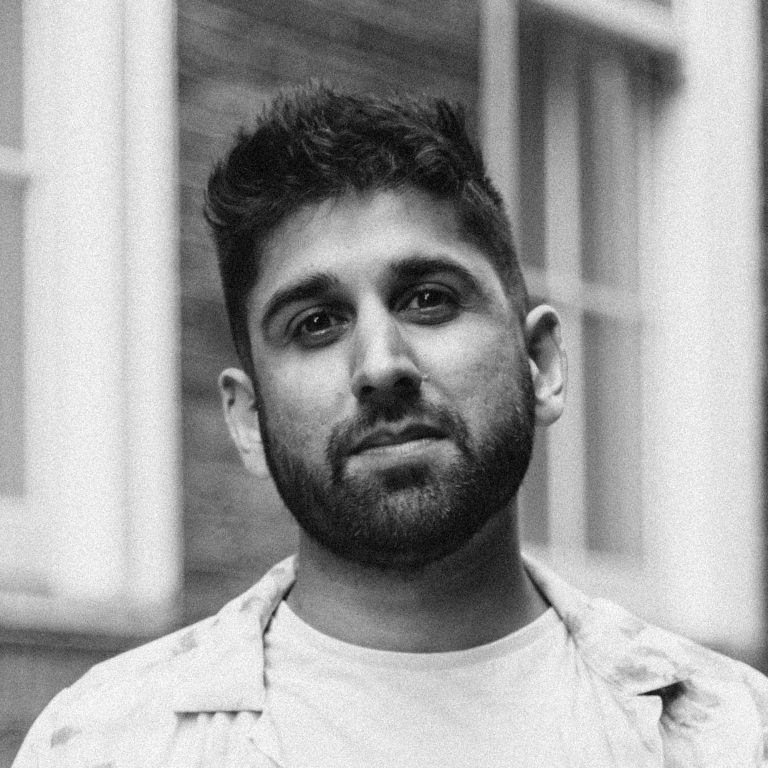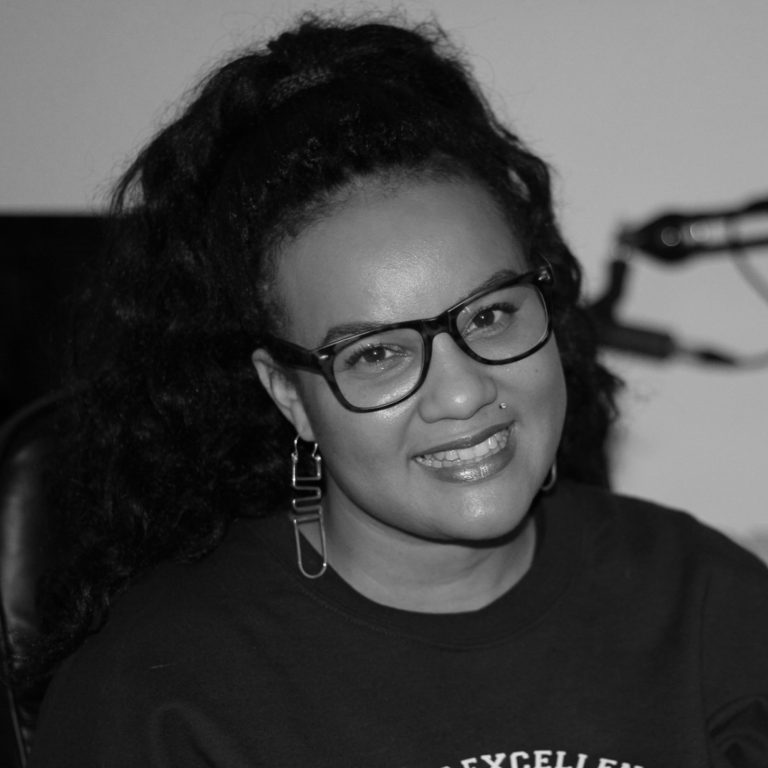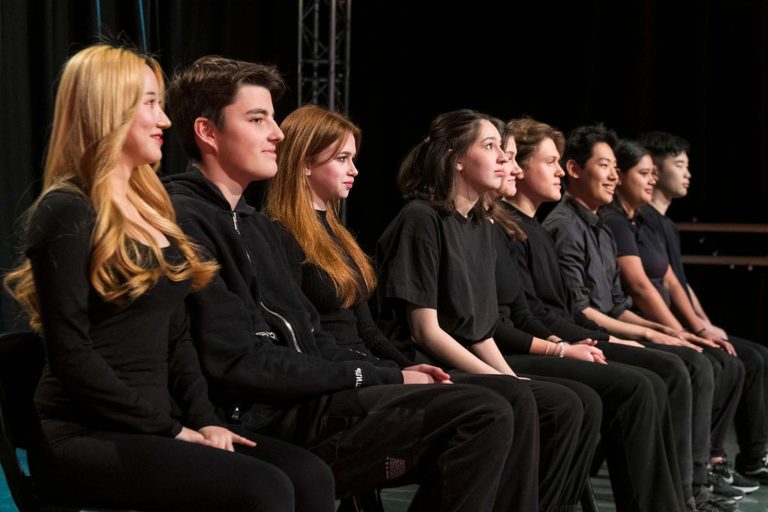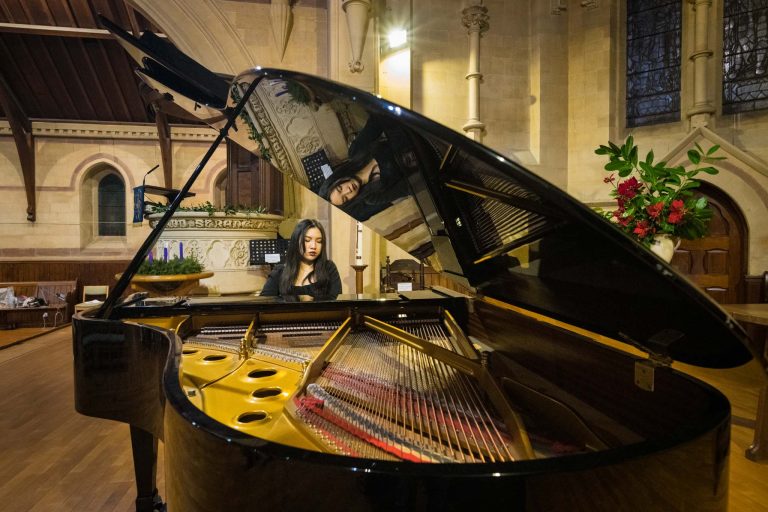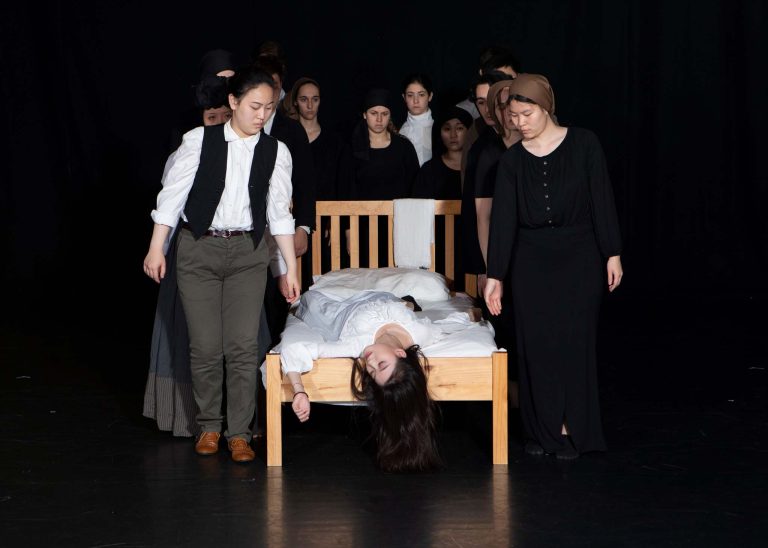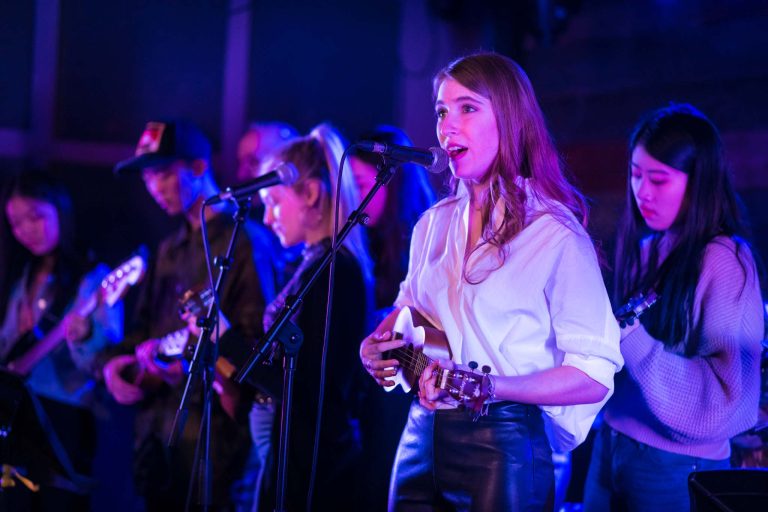Extended Diploma in Music Production & Performance
An exciting programme designed to prepare students for progression to competitive music programmes at university or Music Conservatoires.
This programme will enable you to refine your skills (composition, theory, performance, and recording) and broaden your musical knowledge and understanding. It is designed to give you unrivalled breadth of content and flexibility, allowing you to focus on particular areas of passion as well as developing your skills and creating well-rounded, confident musicians.
We have two tailored music pathways:
- Classical Performance: aimed at the more classically trained musician. Students will work towards entry into university, conservatoire, or music college.
- Pop Performance and Music Production: aimed at both pop-based contemporary musicians and music production students. Students will work towards entry into both pop performance and music production courses at universities, music college and music institutes.
WHAT TO EXPECT FROM THIS COURSE
- Small class sizes, allowing for work that can be adapted to meet your needs and also allowing for personalised feedback and guidance.
- Weekly principal study one-to-one lessons with industry leading tutors.
- Opportunity to study new instruments.
- Regular performance opportunities throughout the year and end-of-year recitals in professional venues at the University of Cambridge and in the city.
- Masterclasses and workshops from visiting artists and conservatoire teachers on audition preparation and musical development.
- Brand new custom-built music studio including integrated control room and live room.
- Opportunity for individual lessons in a second instrument and support to start learning a new instrument.
- Our teaching staff are highly trained, have industry experience and are active professionals.
- Outstanding track record of getting students into music colleges and conservatoires.
- Exciting cross-arts collaboration projects with other creative departments such as Drama, Musical Theatre, Game Design, Fashion and Film.
UCAS TARIFF
YEAR 1 The UAL Level 3 Diploma in Performing and Production Arts (Music) is the midway point of the qualification and attracts UCAS tariff points for each final grade as shown below. Please note, it is not recommended to leave the qualification between years 1 and 2 as most universities will require the complete qualification.
Pass 36 – Merit 60 – Distinction 84
YEAR 2 The UAL Level 3 Extended Diploma in Music Performance & Production is the complete qualification equal to 3 A-levels, and attracts UCAS tariff points for each final grade as shown below:
Pass 72 – Merit 120 – Distinction 168
THE AWARD
The UAL Level 3 Extended Diploma in Music Performance & Production is quality assured by UAL Awarding Body through a rigorous external moderation process, and grades are monitored against agreed national standards. It is also regulated by Ofqual.
THE AWARD
At the end of the course, upon successful completion, you will be awarded the UAL Level 3 Extended Diploma in Music Performance & Production.
“This course has helped me develop an advanced understanding of music theory and music history. I better understand the instruments and the course has helped me to become a better musician overall.”
Joe – Extended Diploma in Performing Arts
VIDEO
HIGHLIGHTS
OVERVIEW
Course Location
Cambridge
Course Length
2 years (6 terms)
Course Start
September
Studio Access
Students have access to our studios 7 days a week, from 8:00 am to 8:00 pm Monday to Friday, and from 11:00 am to 6:00 pm during the weekend.
Contact Time
Up to 25 hours per week with One-to-One tuition 1.5 hours each week.
Awarding Body
University of the Arts London Awarding Body
How your Work is Assessed
Assignments and projects focused on your main instrument or area of study, following the specification set by UAL, the awarding body.
English Language
Up to 5 hours per week if required
Progression
University music department, conservatoire or music technology college
ENTRY
Age
16 years +
Educational Level
Successful completion of Secondary Education (Grade 10 or Grade 11 depending on native country) or 3 x GCSEs at grade 4 or C or equivalent overseas qualification, preferably in a relevant creative subject. Students who do not meet these entry requirements will still be considered on their own individual potential to succeed.
English Level for International Students
IELTS 4.5+ (no element under 4.0)
Audition
An audition and music theory test are required for entry to this course. Please refer to our Audition Guide for more information. The theory test is to assess an applicant’s skill and knowledge level.
STRUCTURE
In today’s world it is not only important to be able to play your instrument well, but it is vital to understand the history of the craft. As well as this, the modern musician needs to have a good understanding of music technology, so computers are a key element for all our musicians; the ability to be able to use the software, make your own recording, mix and master it, release and market it are all important skills if you are to become a professional musician.
If you are looking for a place at a university music department you will be well prepared for higher education. As well as high-level performance training we will also undertake rigorous academic training in areas including music history, theory, analysis, composition, and aural training. At a music university department your study will be more academically based; you will study a broader range of content of which performance is just one element. If you are looking for a place at a Conservatoire or Music College, you will be given the opportunity to undertake extensive preparation for entrance examinations and auditions. At a Conservatoire or Music College there will be a greater focus on performance. You will be encouraged to build links within the music industry through course projects and key units throughout the year.
SUBJECTS
These skills are necessary for making progress in performance, composition, historical and analytical work. Aspects covered: sight-singing, interval and chord recognition, rhythmic dictation, as well as recognition of style, genre and period.
Explore and analyse the cultural aspects of world music; folk, fusion, non-Western ‘classical’ music and learn to play and compose in these styles. We will also examine how world music has influenced Western composition in the past, and continues to do so today.
Develop skills in refinement of musical ideas; developing ideas; understanding of the possibilities and limitations of instruments and voices; and clarity of notation and performance instructions. You will produce a portfolio of compositions, to include vocal and instrumental music, and music for theatre.
Broaden your knowledge of repertoire on your instruments from the Renaissance to the present day. Learn how to plan balanced programmes for auditions, exams and concerts. There will also be discussions of different performing styles by musicians past and present.
This course provides you with a comprehensive overview of Western music history through listening, research and analysis. You will be encouraged to experience and evaluate music and its meaning with an open mind, and to explore more deeply areas that are relevant to your own field and interests.
Based on individual skill levels you will be entered for Associated Board theory exams at the appropriate grade at the end of the academic year.
This subject is for students pursuing Popular Music Studies; you wiil develop ensemble performing skills: to play accurately and musically together, to listen to other players, to understand balance of parts and to develop different ways of communicating ideas and intentions during performance.
Develop ensemble performing skills from a wide range of repertoire and styles. The pieces could deploy anything from two singers/players to everyone in class. Apart from your main instruments, you will be encouraged to sing, play recorder, percussion and any other instruments that the others could play.
This course provides a detailed look into the history of Western Pop and Jazz Music. You will explore the key features of various genres as well as learning to perform and compose in these styles. Improvisation and other creative music techniques will also be tackled in these classes.
Develop a working knowledge of music production through several practical recording and electronic music projects. Recording production techniques will include the use of microphones, recording techniques, mixing techniques, post-production techniques using effects and processors and mastering. Electronic music will include study of sound manipulation and composition techniques such as subtractive synthesis, sampling, and composition for film/games.
You will be refining your rhythm skills through group performance of the music of West Africa, Brazil and more on authentic instruments. In this class you will work on the crucial skills of pulse, rhythmic independence, and polyrhythm to help you to in your principal instrument performances.
Keyboard skills, both intermediate and advanced, will teach you interesting ways to play chords as well as other important skills needed by all musicians. Ukulele will also be taught as a vehicle for learning harmony and working on the coordination skills of playing and singing at the same time.
FACULTY
AUDITIONS
REQUIREMENTS
Students can audition with one performance piece of their choosing, which should showcase their main instrument or primary area of study (production/composition). However, they are welcome to submit more than one piece if they feel it better represents them or if they are a multi-instrumentalist.
Students must complete:
- Background information form
- Music Theory test
Both forms must be supplied when applying for the course.
The Music Theory test needs to be completed under exam conditions. It is used to gauge the student’s knowledge and understanding of music. There is no pass or fail to the test, but it will be used to help place the student in the correct theory class.
AUDITION GUIDE
What We Look for in an Audition guide, to prepare fully for your audition at CSVPA.
RELATED COURSES
TALK TO US
Do you want to find out more about CSVPA? Talk to our student advisors now.





